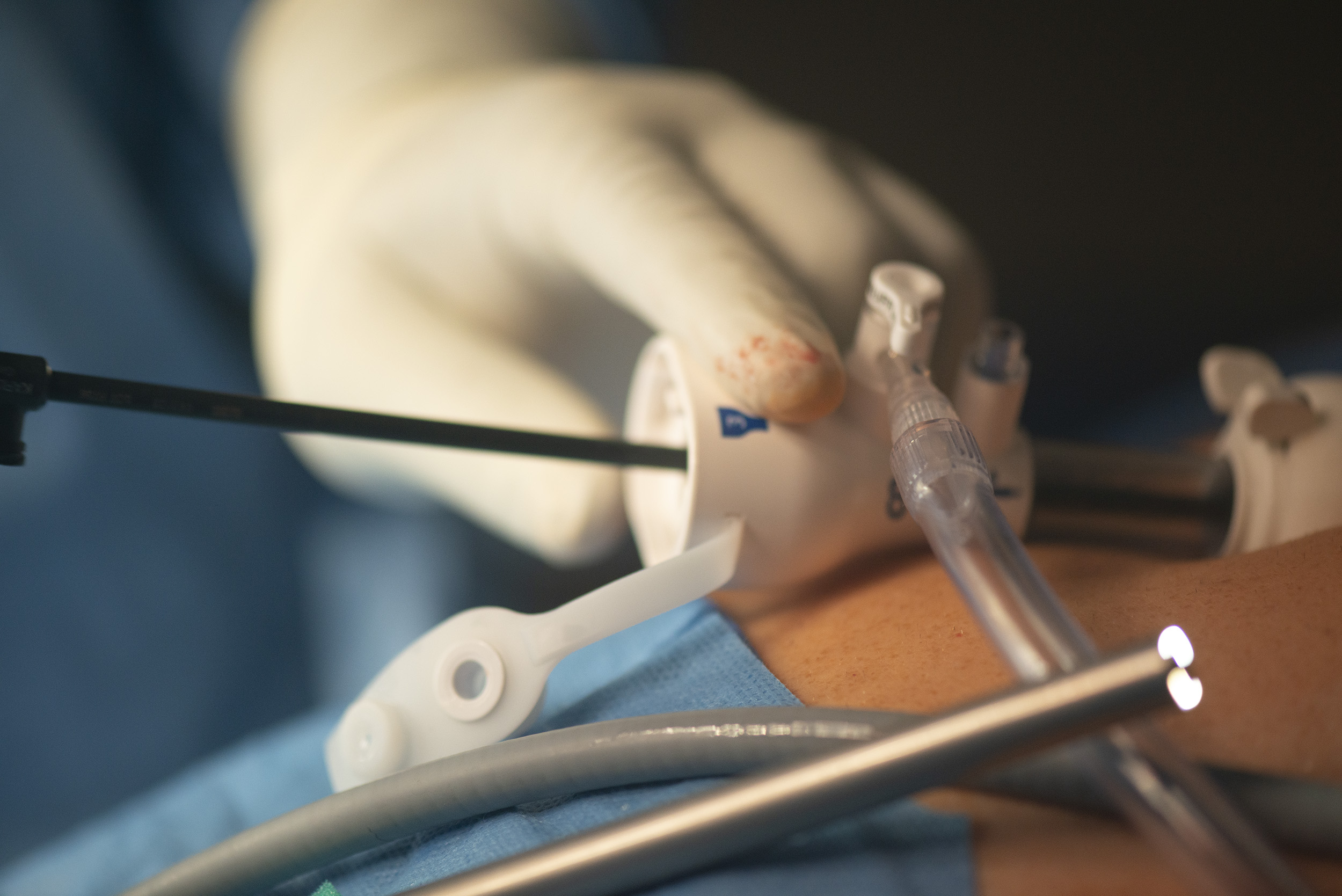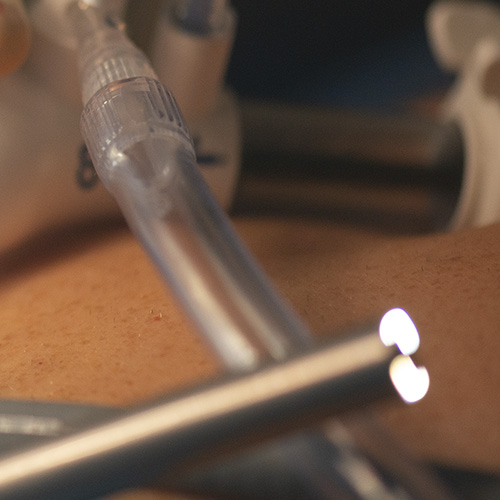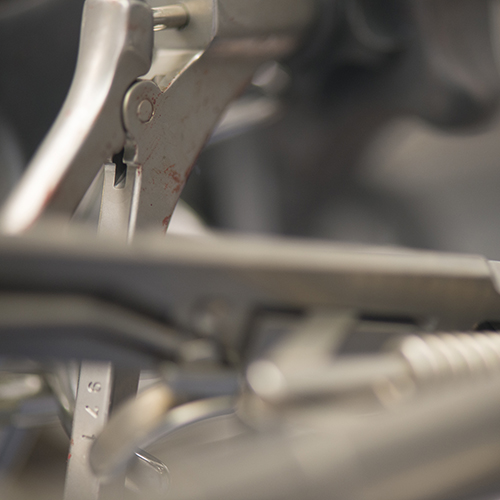Adhesions are bands of tissue that form between the abdominal organs. Normally, the surface of abdominal organs is smooth and glistening. This enables the abdominal organs to slide or glide over each other with ease. Adhesions cause the abdominal organs to stick together. Most often, the adhesions are asymptomatic and cause no trouble to a person. The most common cause of abdominal adhesions is surgery. Factors that promote adhesion formation post surgery include physical handling of the abdominal organs, contact of the organs with foreign objects such as gauze and blood clots that were not completely cleaned out. Adhesions secondary to surgery may cause disease many years later. Adhesions can also be due to inflammation in the abdominal cavity. Inflammation can be due to appendicitis or peritonitis. Radiation treatment has also been shown to contribute to adhesion formation. Adhesions if symptomatic often present with chronic abdominal pain. In the abdomen, they can result in intestinal obstruction; in the pelvis they cause infertility.




